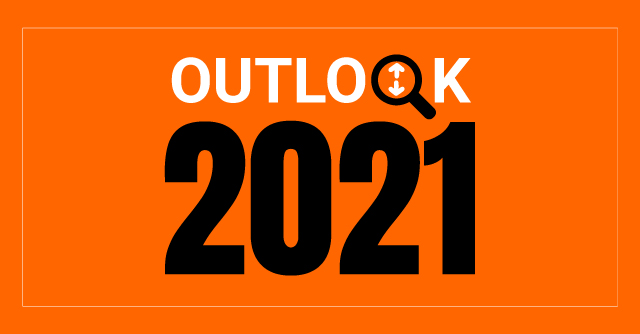
Outlook 2021: Practical, flexible regulations imperative for gig workers and platforms


In India, labour falls under the Concurrent List of the Constitution, and hence, Parliament and state legislatures can enact laws and regulations on labour. There are more than 140 central and state laws in the country, many of which were enacted during the early industrial revolution days.

These laws, while relevant for sectors they were originally written for, now appear archaic, impractical, inconsistent for new age sectors, including but not limited to the manner in which work, as a concept, has evolved and innovated rapidly.

Today, it is not just a job that interests many -- it is the work that matters. Hence, the concept of work has evolved into various forms, including salaried jobs, contractual employment, freelancers and the most talked about concept of gig work.
Before we jump to the common perception and conclusion that gig work means just 'delivery', it is important to understand what 'gig' truly stands for and appreciate its importance and relevance. While the word 'gig' has existed from the early 12th century and has undergone various usages, it was in the 1920s that the term was commonly used by musicians to mean short-term engagements, which brings it closer to its usage in today’s times.
With the emergence of a digital society, the gig economy received a major boost. The digital global gig economy, in 2018, generated a gross volume of around $204 billion, and is expected to rise to $455 billion by 2023.

For many engaged in the gig economy, the freedom to decide when, what and how much to work is considered a game changer, compared to someone being stuck in a nine-to-five job. Those working nine-to-five may feel they suffer from everything, but have job security and fixed earnings.
People in the gig economy today undertake multiple jobs -- many even pick and choose days they want to work and what job to do. This has made available a potential workforce that has enabled small businesses to evolve innovatively, perform efficiently and compete with large companies still saddled on traditional engagement models.
The big tech heavily depends on gigs these days -- from people whose skills are used in AI, data analysis, blockchain, robotics, bitcoin, entertainment, marketing, advertising to social media influencers and even ethical hackers.

The gig economy also includes a large strata of society who are engaged with aggregator platforms and are dependent on gig work, mainly for their livelihood. Delivery persons, drivers, beauticians, plumbers, mechanics, electricians etc. form an important part of the gig workforce.
For businesses till now, compliance with multiple labour laws that may or may not be applicable was an administrative nightmare, and the fear of the unknown made it worse. Hence, the government’s move towards labour reforms, such as the recently-introduced Code on Social Security, 2020, which subsumes eight central labour laws and lays down rules for contribution to social security and payment of employee benefits, including retirement benefits, is welcome. The Code also recognises the concept of gig/platform worker and provides provisions, wherein state governments may formulate and notify suitable welfare schemes for gig and platform workers.
The ministry also issued draft central rules under the Code on Social Security. The draft rules elaborate on the measures to be adopted by platforms that engage with gig workers and the role they would play in supporting the government’s initiative of extending social security net to gig/platform workers by means of welfare coverage.

While the intent and efforts of the government in granting legal recognition to this form have been welcomed, there are certain provisions that need to be clarified to ensure practicality and relevance for smoother and effective implementation of the Code.
For example, the draft rules expect aggregators to share information about their gig/platform workers electronically on the proposed government portal and register themselves. Since there is a possibility that some workers have regular or part-time jobs while engaging in gig work, it would be difficult for aggregators to determine the workers’ eligibility, which can easily be undertaken by the government, which owns these databases.
The draft rules require gig/platform workers to authenticate themselves through the Aadhaar mechanism, with the involvement of aggregators, which may possibly conflict with court verdicts. The Code lays down eligibility criteria for a gig/platform worker with a minimum 90-day engagement qualifier, but does not say whether it should be on one or multiple platforms. Ideally, it should be up to the gig worker to prove to the government through their own data the performance of the 90-day requirement to become eligible.

The Code further provides for a Social Security Fund, with contributions from aggregators, central and state governments. The draft rules specify such companies to contribute 1-2% of their annual turnover. However, considering that businesses have multiple verticals that may not engage in gig work and also since not all aggregators engage with gig workers, it is necessary to clarify that ideally, the contribution expected to the Social Security Fund should be basis the revenue attributable only from the business vertical that engages with gig/platform workers.
It is also important that the Code clarifies that the Social Security Fund shall be the only contribution for welfare of gig and platform workers to avoid duplication by other ministries, which seem to prescribe similar benefits under their own regulations.
Many gig workers take pride in calling themselves “self-employed” on their own terms and also offer their services through platforms. It is this aspect that made the government recognise and respect its essence that led to a carving out in the new code. Gig work has been often termed as the future of work, and rights and welfare are certainly of utmost importance. Yet, it is important for regulations to be practical and flexible to ensure interests of both gig workers and platforms are ensured.


Priyanka Mathur
Priyanka Mathur is a senior manager of policy at IndiaTech. The views in this article are her own
